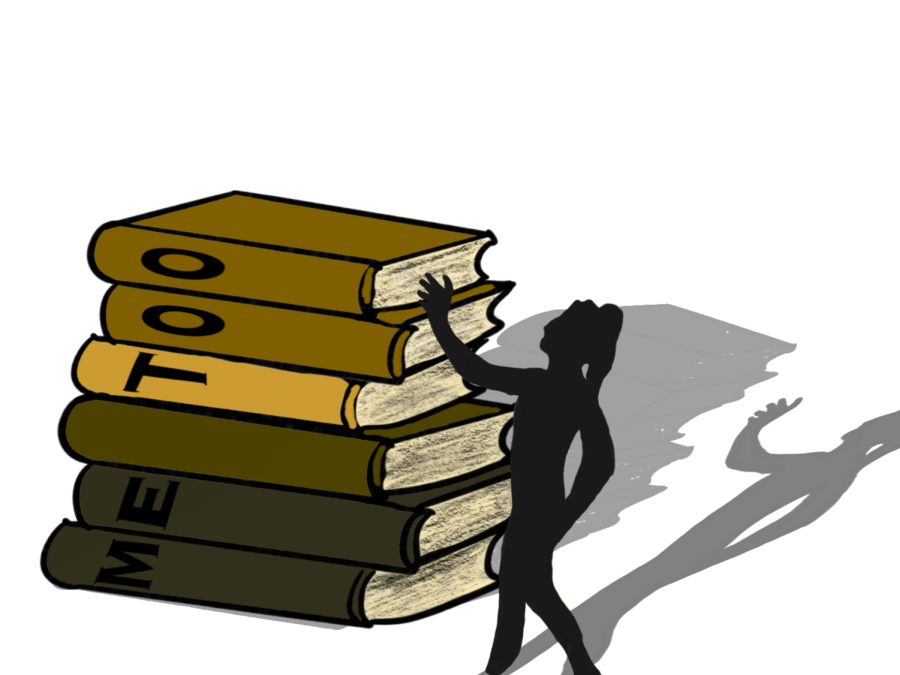The #MeToo movement reveals years of sexual misconduct in children’s and YA literature
How should readers respond to authors’ immorality?
January 17, 2019
James Dashner, author of The Maze Runner and The Eye of Minds: dropped by publisher.
Jay Asher, author of Thirteen Reasons Why: dropped by agent.
Junot Diaz, author of The Brief Wondrous Life of Oscar Wao: withdrawn from the Sydney Writers’ Festival.
Richard Paul Evans, author of the Michael Vey series: banished from Salt Lake Comic Con.
Sherman Alexie, author of The Absolutely True Diary of a Part-Time Indian: removed from the title of a scholarship.
Daniel Handler, author of A Series of Unfortunate Events: canceled as commencement speaker.
Nobel Prize in Literature: suspended.
Why?
The answer is the #MeToo movement. It has dug up years of sexual harassment, abuse, and assault in the world of children’s and young adult literature.
The main digger was author Anne Ursu, who collected over ninety stories of sexual/psychological/physical harassment in the writing industry and published them online. She says, “We work in children’s books, and we like to think we are different, somehow. We value ‘kindness.’ The ranks of publishers are populated with women. And everyone is so nice, right? But we aren’t different, and before we can do anything about sexual harassment, we need to face that reality. And the reality is that a culture of “kindness” can silence people who have been harassed, that women can be complicit in a culture of sexual harassment and gender discrimination, and that the people who we work alongside, whose books we care about, who we like, can be sexual harassers. Facing this reality is going to be ugly. But it is far uglier to pretend these problems aren’t here.” You can read her full essay here.
Many prominent authors, including those aforementioned, were exposed by Ursu and other participants in the #MeToo movement. James Dashner, Jay Asher, and Daniel Handler have had their books made into movies/TV shows. But their violations range from offensive comments to outright assault.
From what I’ve read and in my opinion, Handler is a huge sexist jerk who also happens to speak to elementary school children. Women have told of rude jokes he’s said that made them very uncomfortable, but they didn’t say anything because he’s such a powerful figure in children’s literature.
Junot Diaz, a Pulitzer Prize winner, convinced Alisa Valdes to sleep with him in return for his assistance in advancing her career. He later apologized and told the story of his own rape as a child, which apparently justifies his actions. Since the obvious response to childhood trauma is to go and traumatize others.
(Of course, I’m being sarcastic when I say that. Therapy is actually a nice alternative to sexual assault.)
I’m not a big fan of most of the authors I’ve mentioned here. The Eye of Minds by James Dashner was okay. The Bad Beginning by Lemony Snicket (Daniel Handler’s pseudonym) was also okay. The Absolutely True Diary of a Part-Time Indian was pretty good, but I wasn’t surprised when I heard of Sherman Alexie’s wrongdoings based on his book.
But I really loved the Michael Vey series. Richard Paul Evans was banned from Salt Lake Comic Con because of, it seems, a hug given without consent. Consent is very important, but kicking an author out of an event for a hug is, in my opinion, a bit of an overreaction. The later actions of Evans are what have turned me against him. He has compared the problems of white men today to the problems of Jews in the time before the Holocaust which I strongly believe is not okay.
But with all of these facts coming to light, we, as readers, now face the question of “Should we read books by authors who have sexually harassed people?”
That’s a really tough question.
On one hand, the content of a book won’t change if its author does something horrible.
On the other hand, reading a book and therefore supporting the author can say, “I’m going to keep being your ‘customer’ regardless of your actions. Do whatever you want.” That’s a message we definitely don’t want to send.
I think it’s up to each individual reader to decide how they will respond to an author’s sexual misconduct. You could burn the books by offending authors. You could restrict your reading to library books so as not to give offending authors more money. You could ignore all of this completely. It is your choice.
However, something every single person should do, no matter their reading habits, is encourage awareness of these issues. This article is only the tip of the sexual misconduct iceberg and I think we could all benefit from looking into it a bit more and educating ourselves on the issue.



Krissy • Aug 7, 2019 at 7:00 pm
To correct this article, Richard Paul Evans sexual misconduct wasn’t just misunderstood hugs. Here are a list of complaints against him from women who were at the SLC FanX of inappropriate physical contact as well as unprofessional behaviour toward women.
https://www.facebook.com/robisonwells/posts/10155550317198907
K Shull • Aug 7, 2019 at 3:50 am
Richard Paul Evans made it sound like his sexual harassment of Shannon Hale was a misinterpretation of a simple hug, kiss and compliment of her looks, but it was not. Shannon said he groped her.
See her post on her tumblr page:
https://shannonhale.tumblr.com
Rachel Long • Jan 22, 2019 at 11:27 am
I would think that if we were to research other authors of great literature, we may find that some were not that great of a person. It really makes you think about the debate between enjoying good literature, movies, etc. and not supporting someone’s acts that go against your values and/or are against the law. There is no good answer to this, but I’d love to hear a debate of both sides.
Jamie Hedlun • Jan 20, 2019 at 2:19 pm
Adah, I’m so glad you went with this article. It was an interesting read, and — as always — your own voice/commentary makes it worth sharing.
Bree Ervin • Jan 17, 2019 at 7:42 pm
Thanks for writing this and speaking up on this issue. I hope people take your advice to heart and educate themselves further on this topic.
Rachel Long • Jan 17, 2019 at 8:21 am
I didn’t know this about any of these authors. Good job on this article.